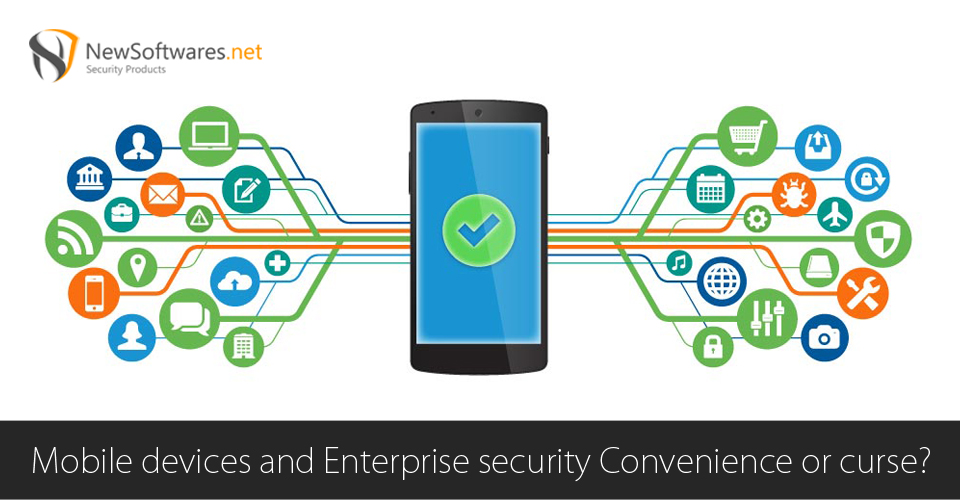In the late 90’s, desktop computers was the best tech marvel to hit the consumer electronic market. Back then, the internet was in its infancy, and people began to discover how they could utilize this new form of communication for entertainment, education and information. However, no one could predict how huge the internet revolution would become. Today, entire industries are based on e-commerce and technology.
Accordingly, with the advent of smartphones and tablets, the world of information technology has entered into a new era. Wherever we go, no matter where we are, we are constantly connected to the internet through our handheld devices. However, with every new innovation comes new threats and the same is true for handheld devices such as smartphones and tablets.
Today mobile devices have nearly the same computing power as most desktop machines. These handheld devices allow people to use these devices anywhere, be it at work, class or on a beach sipping on their pina-colada. In a nutshell, smartphone and similar devices are the new normal for our society. In fact, they are considered the perfect gift for that special someone. Whether it’s Christmas or some other holiday, smartphones and tablets are sure to be found on anyone gifts list.
Although a new smartphone or tablet can bring a huge smile on an employee’s face, it can become a nightmare for the IT department when employees get connected to company’s WIFI connection. However, many IT security department don’t generally view mobile connections as security threat, it can pose a serious threat. Hackers can potentially target devices belonging to employees by using sophisticated backdoor attacks, although such attacks can be prevented if IT departments take proactive steps to prevent such attacks.
Companies can also mandate employees to use some sort of data encryption app, in order to prevent hackers from accessing sensitive company related documents or content.
Read About: USB Security: Everything you need to know about secure USB drives
Mobile Technology Boon Or Curse
Mobile technology can be both a boon and a curse. On one hand, it has enabled us to stay connected and stay informed, making it easier to communicate and collaborate with others. On the other hand, it has also created a culture of distraction and over-reliance on technology, leading to an increase in cyberbullying, cybercrime, and other negative impacts. Ultimately, it is up to us to use mobile technology responsibly and to strike a balance between the benefits and the risks.
Risks To Using An Enterprise System On Mobile
1. Security: Mobile devices are more vulnerable to cyber-attacks than desktop computers, and the data stored on them can be easily compromised.
2. Data Loss: If the device is lost or stolen, the data stored on the device may be lost.
3. Unauthorized Access: If the device is not properly secured, unauthorized users may gain access to the system.
4. Performance Issues: Mobile devices are often slower and more prone to crashing than desktop computers
Is Mobile Useful Or Harmful?

Mobile devices can be both useful and harmful, depending on how they are used. They can provide convenience, access to information, and communication, but they can also be used for malicious activities, such as data theft, fraud, and cyber-attacks. It is important to use security measures to protect mobile devices and the data stored on them.
Advantages Of Mobile Phones
Advantages of Mobile Phones:
• Convenience: Mobile phones allow people to stay connected and communicate with ease. They are also useful for navigation, entertainment, and accessing information.
• Productivity: Mobile phones can be used for work tasks, such as sending emails, making calls, and taking notes.
• Connectivity: Mobile phones allow people to stay connected with family and friends, no matter where they are.
Disadvantages Of Mobile Phone
Disadvantages of Mobile Phones:
• Distraction: Mobile phones can be distracting, especially when used while driving or in class.
• Health Concerns: Mobile phones emit radiation which can be harmful to the user’s health.
• Security: Mobile phones can be vulnerable to hacking and data theft.
• Cost: Mobile phones can be expensive, especially when purchasing data plans and accessories.
What Is The Negative Of Mobile?
The negative impacts of mobile phones include:
• Increased distraction and potential for accidents when used while driving.
• Health risks due to exposure to radiation.
• Security risks from hacking and data theft.
• Higher costs for data plans and accessories.
• Increased environmental impact due to manufacturing and disposal of phones.
Mobile Devices Difficult To Secure In Business

Mobile devices are difficult to secure in business because of their portability and the fact that they are used by multiple users. Mobile devices often lack the same level of security as desktop computers and laptops, making them a prime target for hackers. Additionally, mobile devices are often used to access corporate networks and sensitive data, making them a major security risk. To protect against these risks, businesses must implement strong security measures such as mobile device management, encryption, and authentication.
What Is Enterprise Mobile Security?
Enterprise mobile security is a set of strategies and technologies that protect mobile devices and their associated networks from malicious attacks and unauthorized access. It includes measures such as mobile device management, encryption, authentication, data loss prevention, and malware protection. Enterprise mobile security also involves the use of mobile device management (MDM) solutions to ensure that devices are properly configured and managed. Additionally, enterprise mobile security also involves the use of mobile application management (MAM) solutions to ensure that applications are properly secured
The disadvantages of enterprise systems include costs associated with implementation and maintenance, lack of flexibility, security risks, and lack of user control. Implementation and maintenance costs can be high due to the complexity of the system and the need for specialized personnel. Moreover, enterprise systems can be inflexible, as they are often built to serve a specific purpose, and changes to the system require significant effort. Security risks can arise from unauthorized access, data breaches, and malicious attacks.
Benefits Of Mobile Phone
1. Increased Connectivity: Mobile phones provide users with the ability to stay connected with family, friends, and colleagues, no matter where they are.
2. Increased Productivity: Mobile phones allow users to access information quickly and easily, enabling them to work more efficiently.
3. Increased Convenience: Mobile phones provide users with the ability to access applications and services on the go, allowing them to get more done in less time.
Importance Of Mobile Security

Mobile security is important today because of the increasing use of mobile devices, the emergence of new threats, and the need to protect sensitive data. Mobile devices are used to access the internet, store and send data, and conduct financial transactions, making them a prime target for malicious actors. Furthermore, the prevalence of mobile devices means they are more likely to be lost or stolen, leading to the potential loss of sensitive data.
Problems With Mobile Security
Mobile device security is a complex issue, as mobile devices are often used to access sensitive data and are vulnerable to a variety of threats. Some of the main issues with mobile device security include malware and viruses, data breaches, weak passwords, lack of encryption, and unauthorized access. Malware and viruses can be used to steal data or gain access to private information. Data breaches can occur when personal information is accessed without authorization, leading to identity theft and financial loss. Weak passwords can be easily guessed.
